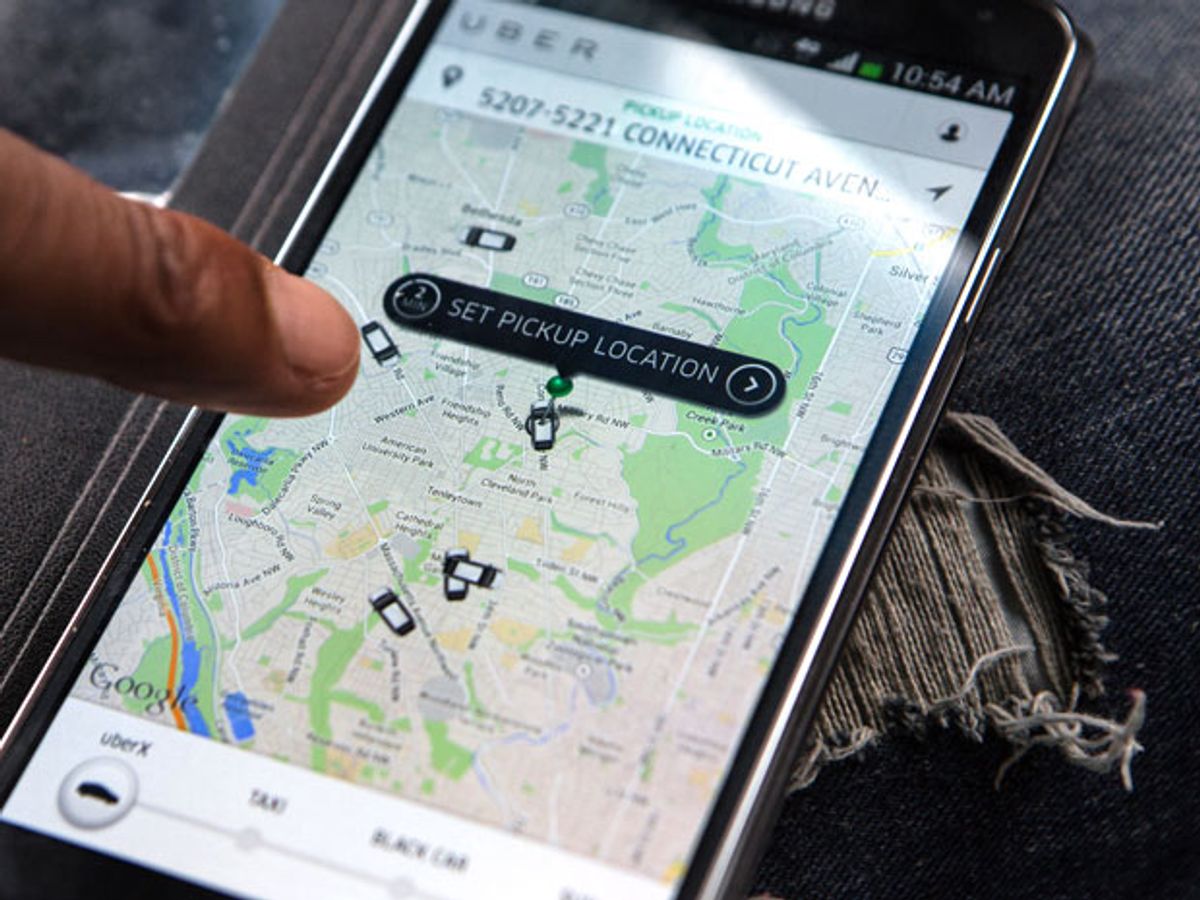On the Fourth of July, I hosted a barbecue for my 22-year-old son, who is a touring performer, and two dozen of his friends and fellow cast members. Most of them are currently staying in San Francisco apartments, rented through Airbnb. A few took the train to our home in Palo Alto, one used ZipCar, but the largest group relied on Lyft drivers, a low-cost option when splitting the cost of a ride, and far more flexible and efficient than the train. My teen daughter excused herself early in the evening to go to another party, but waved away my question about how she’d be getting home with “Oh, I’ll just Uber.”
Recent coupon blitzes certainly helped with this popularity. Both Lyft and Uber offer hefty discounts to new riders, and the companies are new enough that in a group of people you can still find someone who hasn't yet used the discount.
Uber is five years old. Lyft, two years old. And Airbnb is six. They are already starting to feel as irreplaceable in Silicon Valley as our smartphones. And while certainly Silicon Valley is full of early adopters, it doesn’t seem alone in its dependence on these new peer-to-peer services. “I hate it when cities don’t have Uber,” several of my holiday guests commented. And I’m spotting Facebook friends turned Lyft drivers or Uber aficionados all over the country.
A quick tutorial for someone in a region yet-to-be-colonized by these companies: Uber is a car service called through a cell phone app; regular Uber drivers are professional limo drivers with luxury sedans and SUVs; UberX drivers are unlikely to have professional experience and drive whatever car they happen own. Lyft is essentially like UberX (though they got there first), and has added Lyft Plus to compete with Uber's regular offering. Airbnb is an online service matching would-be renters and rentees for short-term rentals of rooms, apartments, and homes.
I confess that despite living in Silicon Valley I tend to be a late-ish adopter. So I haven’t Uber’ed or Lyft’ed yet—but I’m planning to use one for my next trip to the airport (the San Francisco airport blocks Uber and Lyft pickups; I’m pretty annoyed by that, given that the airport officials authorize an astronomical taxi markup for points south). And do find myself contemplating what it would take to turn a room or two in the house into an Airbnb rental—I know neighbors have already done so.
Not everyone is in love with these startups. They are doing battle in San Francisco over those airport rules, Ann Arbor, Michigan, is trying to shut them down, and they are still illegal in Virginia, though they are now legal in London in spite of protests. In New York, taxi drivers are incensed about Uber’s price cut this week. Airbnb was just fined in Barcelona for breaking local laws. The struggle to figure out how and how much to regulate them is just beginning.
And inevitably bad things will happen in the course of a ride or a home stay. Uber drivers have accidents. (As do cab drivers.) Occasional Airbnb guests will do harmful things (But so do hotel guests). Occasional Airbnb hosts will turn out to be creeps or worse (poor reviews will quickly drive them off the service.)
But it seems there’s a lot good about these peer-to-peer economy companies. The frequent Uber and Lyft users I know are regularly offered bottled water or candy, like not having to deal with payment (it’s managed through the app), and say they’ve had a lot more anxiety with high-speed reckless cab drivers than they have had in the Uber or Lyft worlds. And the reports I hear about Airbnb experiences have also been uniformly good.
Car rides and places to sleep won’t, of course, be the end of the peer-to-peer economy. Airbnb is experimenting with peer-to-peer restaurants, hosted in homes. That’s going to freak out restaurant health inspectors for sure, and cause more regulatory angst as cities try to figure out the difference between a dinner party and a restaurant. (I’m hoping this business catches on—it’s no different, really, than the fundraising dinners frequently hosted by families of children attending our local elementary school, and I had some amazing meals at those events.) Instacart is taking on grocery shopping. Park at My House is matching cars with empty driveways. (I am quite deliberately leaving off this list the faux peer-to-peer services TechCrunch has called jerktech, that is, companies that encourage people to make money off of sharing things that don’t belong to them.) It’s all making it more and more likely that a world without peer-to-peer commerce is going to be impossible for the next generation to imagine.
Tekla S. Perry is a senior editor at IEEE Spectrum. Based in Palo Alto, Calif., she's been covering the people, companies, and technology that make Silicon Valley a special place for more than 40 years. An IEEE member, she holds a bachelor's degree in journalism from Michigan State University.



